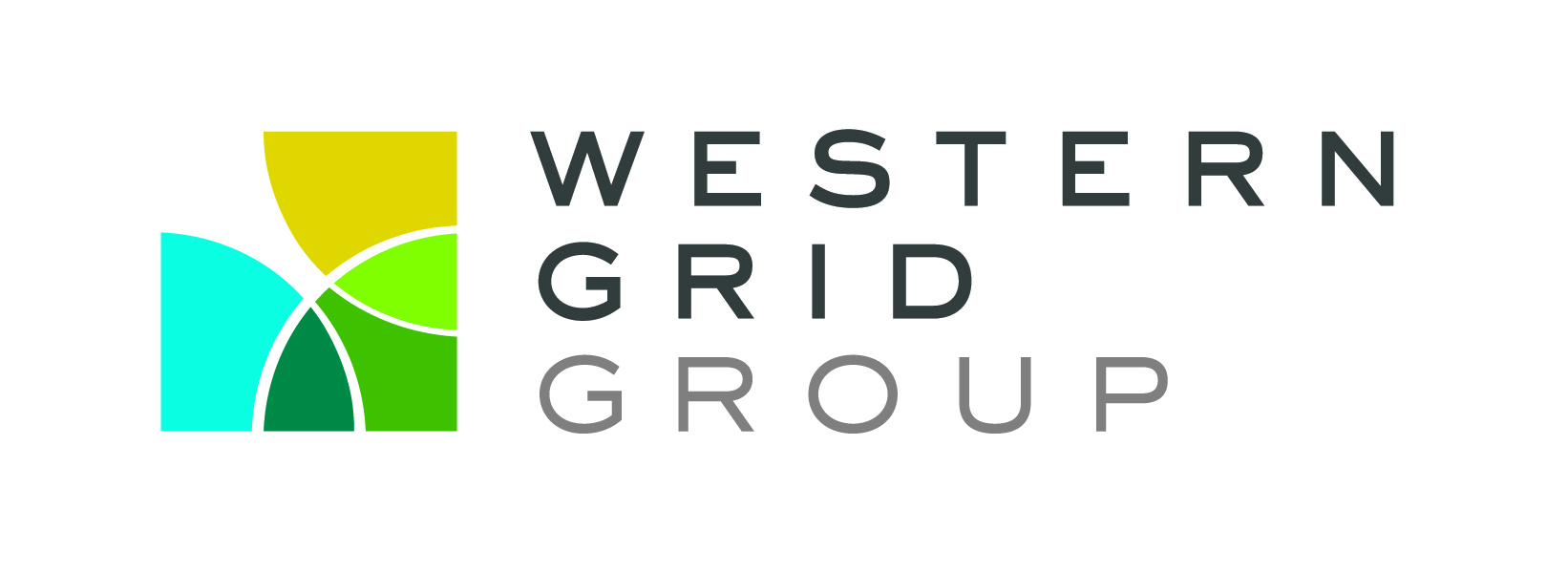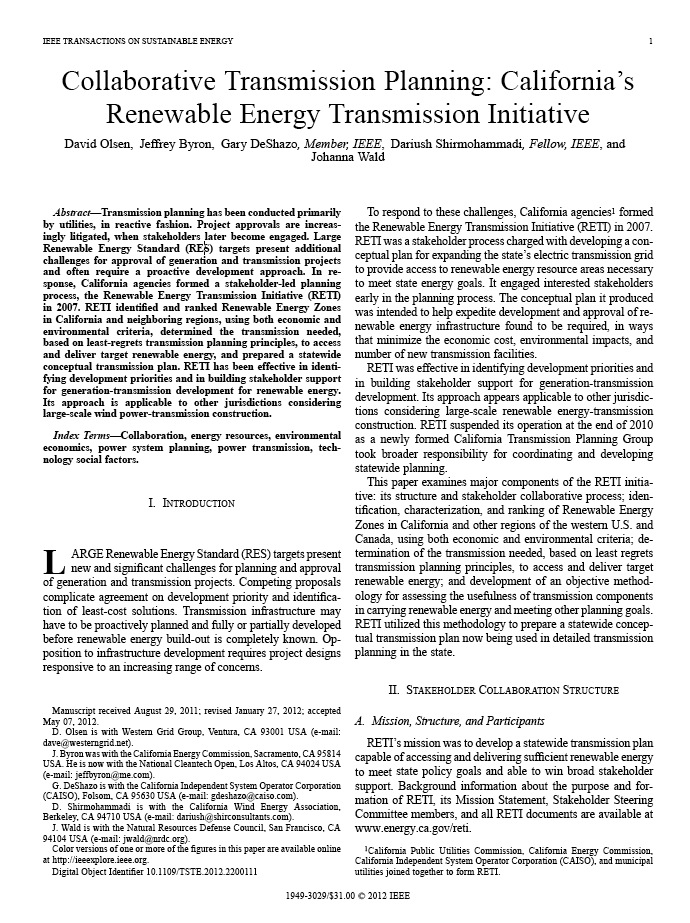Abstract — Transmission planning has been conducted primarily
by utilities, in reactive fashion. Project approvals are increasingly litigated, when stakeholders later become engaged. Large Renewable Energy Standard (RES) targets present additional challenges for approval of generation and transmission projects and often require a proactive development approach. In response, California agencies formed a stakeholder-led planning process, the Renewable Energy Transmission Initiative (RETI) in 2007. RETI identified and ranked Renewable Energy Zones in California and neighboring regions, using both economic and environmental criteria, determined the transmission needed, based on least-regrets transmission planning principles, to access and deliver target renewable energy, and prepared a statewide conceptual transmission plan. RETI has been effective in identifying development priorities and in building stakeholder support for generation-transmission development for renewable energy. Its approach is applicable to other jurisdictions considering large-scale wind power-transmission construction. Index Terms—Collaboration, energy resources, environmental economics, power system planning, power transmission, technology social factors.
DOWNLOAD and VIEW DOCUMENTS:
Abstract
Full Article as published in Transactions on Sustainable Energy.
The article, and the other, more electrical engineering focused papers, are available on IEEE’s Xplore site, ieeexplore.ieee.org, under “Transactions” on Sustainable Energy, Early Access.


Comments are closed